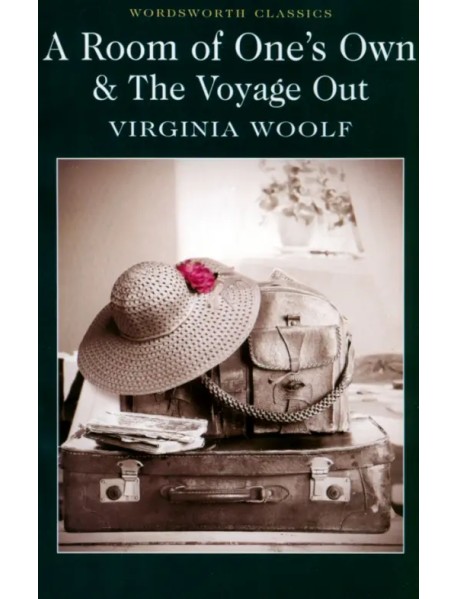Room of One's Own & The Voyage Out

-
22.30 €
-+
"Своя комната" (1929) стала классическим феминистским эссе и, возможно, самым известным произведением Вирджинии Вулф. "Вояж" (1915) весьма значим как ее первый роман. Оба они посвящены месту женщин во властных структурах современного общества.
Эссе раскрывает борьбу женщины-художницы за право голоса, поскольку на протяжении всей истории ей было отказано в социальной и экономической независимости, присущей мужчинам. Рецепт Вульф ясен: если женщина хочет найти творческое самовыражение, равное мужскому, у нее должен быть независимый доход и собственная комната. Это одновременно острый анализ и энергичный призыв к сплочению.
Роман исследует эти проблемы более лично, через персонажа Рэйчел Винрейс, молодой женщины, чье "путешествие" в Южную Америку открывает захватывающие встречи с ее попутчиками, мужчинами и женщинами. Когда она начинает понимать свое место в мире, она обретает счастье любви, но также видит ее грубую силу.
Книга на английском языке.
A Room of One's Own (1929) has become a classic feminist essay and perhaps Virginia Woolf's best known work; The Voyage Out (1915) is highly significant as her first novel. Both focus on the place of women within the power structures of modern society.
The essay lays bare the woman artist's struggle for a voice, since throughout history she has been denied the social and economic independence assumed by men. Woolf's prescription is clear: if a woman is to find creative expression equal to a man's, she must have an independent income, and a room of her own. This is both an acute analysis and a spirited rallying cry; it remains surprisingly resonant and relevant in the 21st century.
The novel explores these issues more personally, through the character of Rachel Vinrace, a young woman whose `voyage out' to South America opens up powerful encounters with her fellow-travellers, men and women. As she begins to understand her place in the world, she finds the happiness of love, but also sees its brute power. Woolf has a sharp eye for the comedy of English manners in a foreign milieu; but the final undertow of the novel is tragic as, in some of her finest writing, she calls up the essential isolation of the human spirit.
Эссе раскрывает борьбу женщины-художницы за право голоса, поскольку на протяжении всей истории ей было отказано в социальной и экономической независимости, присущей мужчинам. Рецепт Вульф ясен: если женщина хочет найти творческое самовыражение, равное мужскому, у нее должен быть независимый доход и собственная комната. Это одновременно острый анализ и энергичный призыв к сплочению.
Роман исследует эти проблемы более лично, через персонажа Рэйчел Винрейс, молодой женщины, чье "путешествие" в Южную Америку открывает захватывающие встречи с ее попутчиками, мужчинами и женщинами. Когда она начинает понимать свое место в мире, она обретает счастье любви, но также видит ее грубую силу.
Книга на английском языке.
A Room of One's Own (1929) has become a classic feminist essay and perhaps Virginia Woolf's best known work; The Voyage Out (1915) is highly significant as her first novel. Both focus on the place of women within the power structures of modern society.
The essay lays bare the woman artist's struggle for a voice, since throughout history she has been denied the social and economic independence assumed by men. Woolf's prescription is clear: if a woman is to find creative expression equal to a man's, she must have an independent income, and a room of her own. This is both an acute analysis and a spirited rallying cry; it remains surprisingly resonant and relevant in the 21st century.
The novel explores these issues more personally, through the character of Rachel Vinrace, a young woman whose `voyage out' to South America opens up powerful encounters with her fellow-travellers, men and women. As she begins to understand her place in the world, she finds the happiness of love, but also sees its brute power. Woolf has a sharp eye for the comedy of English manners in a foreign milieu; but the final undertow of the novel is tragic as, in some of her finest writing, she calls up the essential isolation of the human spirit.
